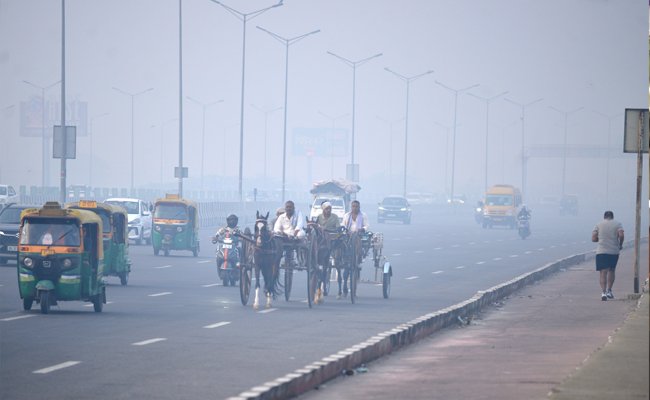New Delhi, Oct 25 : With air pollution levels rising in many cities, the Union Health Ministry has called on states to enhance their preparedness and strengthen the healthcare workforce to combat the impending challenges, especially with the festival season and winter approaching.
In a letter to states and Union Territories, Director General of Health Services (DGHS) Dr. Atul Goel emphasized the need for public awareness campaigns and actions to mitigate pollution. He urged the public to utilize public transport and avoid heavily congested areas to reduce exposure to polluted air.
Dr. Goel’s recommendations include discouraging stubble and waste burning, raising awareness about minimizing firecracker use during festivals, promoting public transportation, limiting reliance on diesel generators, and curbing smoking. “Individuals should monitor air quality indices through government mobile applications before going outdoors and opt for cleaner fuels for cooking, heating, and lighting at home,” he advised.
He highlighted the severe health risks associated with air pollution, noting that the Air Quality Index (AQI) in certain regions has reached moderate to poor levels. This issue is likely to worsen during the festive season and the onset of winter.
Air pollution significantly contributes to acute health conditions and worsens chronic diseases affecting the respiratory, cardiovascular, and cerebrovascular systems. Prolonged exposure to these pollutants can lead to increased premature mortality, particularly among vulnerable groups such as children, pregnant women, the elderly, and those with pre-existing health issues or occupations at higher risk, such as traffic police officers and municipal workers.
In light of these concerns, Dr. Goel urged state health departments and healthcare facilities to boost their preparedness. This includes intensifying public awareness campaigns, disseminating information in regional languages via mass media, enhancing the healthcare workforce’s capacity, and participating in sentinel surveillance systems for air pollution-related diseases under the National Program on Climate Change and Human Health.
He also stressed the importance of raising public awareness about measures to prevent further air quality degradation, such as discouraging stubble burning, reducing firecracker use, promoting public transport, and limiting smoking. Outdoor activities, especially for vulnerable populations like the elderly and those with pre-existing conditions, should be restricted during high pollution levels.
Those experiencing worsening symptoms or discomfort due to poor air quality are advised to seek immediate medical attention.

